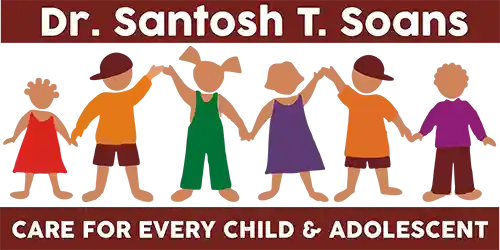Stuttering, also known as stammering, is a speech fluency disorder in which there is disruption in the flow of speech. Commonly, these disruptions may be noticed by parents as:
- Repetitions: You may notice your child repeating a sound, a word, or a phrase. Repetition of sounds may be incomplete, complete, or multi-syllabic. When only the consonant sound without the vowel sound is repeated, e.g., l-l-l-last, it is called an incomplete repetition, whereas if both the consonant and vowels are repeated, as in fa-fa-fa-far, it is called a complete repetition. Sometimes an entire word or more than two sounds are repeated, and these are known as multi-syllable repetitions (I want-want-want-water).
- Interruptions: These are noticeable pauses in speech. Pauses are frequently at the beginning of a sentence or conversation, but they can occur at any time. The child may appear to have a “block” or to be “at a loss” for a moment.
- Prolongations: Children may be noted to prolong a certain sound at the beginning of a word, like cccccccat or mmmmmmilk.
- Insertions: An older child with stuttering often uses corrections (replacing the incorrect word after a pause), insertion of words like um, uh, er, and other nonverbal behaviours such as sighs, gestures, clearing of the throat, etc. when they are aware of their stuttering.

Stuttering does not include any problems with understanding language, reading, or writing. It does not have any correlation with the intelligence of the child or other aspects of development. Most commonly, it is developmental, and symptoms start between the ages of 2 and 5 years.
When to seek help:
Stuttering is a condition that does not have a cure. Early treatment can prevent stuttering from continuing into adulthood. More importantly, treatment helps to mitigate the harmful emotional and psychological effects of stuttering on the personality and overall development.
The most effective therapy for stuttering or stammering is one that begins early. Preschool-aged children show the maximum and fastest response to speech therapy. In addition, a young child is not conscious of his stuttering, and early therapy completely prevents the negative impact of stuttering on the personality and psyche of the child.
The correct time to seek help is when:
- There is a family history of stuttering.
- Your child shows any signs of fear of talking or stops talking, especially in a group or with strangers.
- There are problems in school.
- You notice a change in the mood or temperament of the child, which is not explained by anything else.
- Stuttering has been present for longer than 4 weeks.
How you can help your child:
There are lots of ways in which you can help your child at home.
- The first and most important thing is to be patient and nonjudgmental. Your child does not stutter to irritate you; she has a disorder that she cannot overcome or be blamed for.
- Try to provide a relaxed environment and “safe space” at home.
- Avoid “question-answer” type conversations; instead, help her to share fun and exciting things.
- Maintain eye contact with your child.
- Do not interrupt her and prompt words or finish sentences for her; instead, wait for her in a relaxed and calm manner.
- Praise her efforts, and never lose an opportunity to encourage her.
- Set aside time when you can talk to her alone and uninterrupted.
- Do breathing exercises with her.
- Speak slowly yourself, so she too can speak slowly.
- Sing songs together, read aloud together, and recite poetry together.
- Avoid commands, and make sure to hide your frustration or discomfort when she stutters, especially if you are not alone.
- Whenever you talk about her stuttering, make sure to treat it like a fact, not a disability or something to be ashamed of. Your attitude towards her stuttering will determine her attitude towards it and, in turn, towards her entire personality.
- Educate the entire family, friends, and, if needed, school teachers to help create a supportive and encouraging environment for your child, free from bullying.
- Understand that there are good days and bad days. If your child is feeling unusually stressed, help her out and avoid reading or talking at social gatherings on such days.
- Do not make her stuttering the centre of your and her attention; focus on her other skills too.
